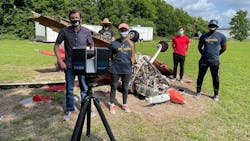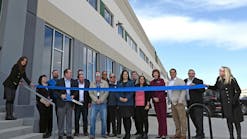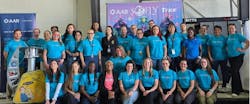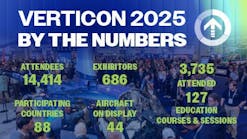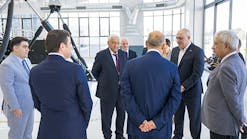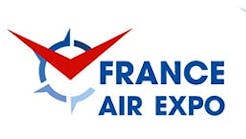New Tech Boosts Accident Investigation Studies at Embry-Riddle
Acquiring a state-of-the-art laser scanner known as the FARO Focus S70, the Daytona Beach Campus of Embry-Riddle Aeronautical University has opened up a whole new digital approach to accident investigation for College of Aviation (COA) students — and provided them with experience not offered at other schools.
“Traditional accident survey/documentation techniques include time-consuming methods and several pieces of equipment such as measuring tapes, inclinometers, digital cameras, GPS units and other devices,” said Anthony Brickhouse, associate professor in the Applied Aviation Sciences Department. “Though these methods will never be fully replaced, it is imperative that future investigators be armed with new knowledge and technology. Being able to expose Embry-Riddle students to the digital FARO system will give them an advantage over graduates from other universities.”
Using the scanner allows investigators to produce 3D recreations of crash sites. At Embry-Riddle, virtual reality goggles will be used in the Extended Reality Lab to allow students to investigate accident scenes in a fully immersive environment. Physical models of the wreckage could also be produced using a 3D printer.
“The power of this scanner and software are amazing,” said Brickhouse. “It is not only an outstanding teaching tool. It also represents a great opportunity for research at the graduate and undergraduate level.”
Embry-Riddle’s Prescott Campus has used a FARO scanner since 2019, and two Prescott students have already been awarded internships at the National Transportation Safety Board based on their FARO knowledge and experience.
Paris Wyatt, an undergraduate at the Daytona Beach Campus in Aerospace and Occupational Safety, has earned her scanner certification and is certain it will help her as he heads toward the job market.
“Throughout my studies, we have talked about the FARO scanner, but I wasn't able to get a full understanding of it until I got hands-on experience,” Wyatt said. “As I am continuing my studies, having that knowledge of what the scanner does and being able to work on the software and scanning really helps my understanding of how investigators work on accident investigations.”
